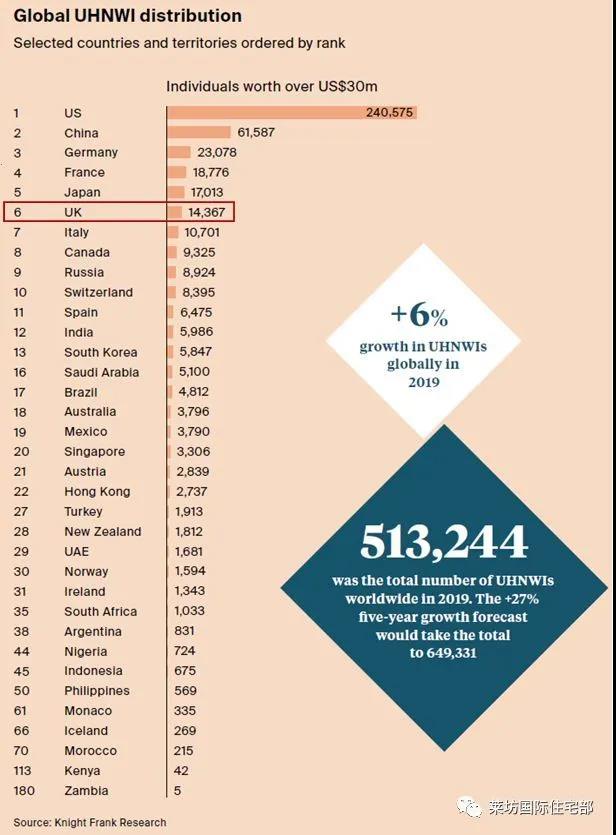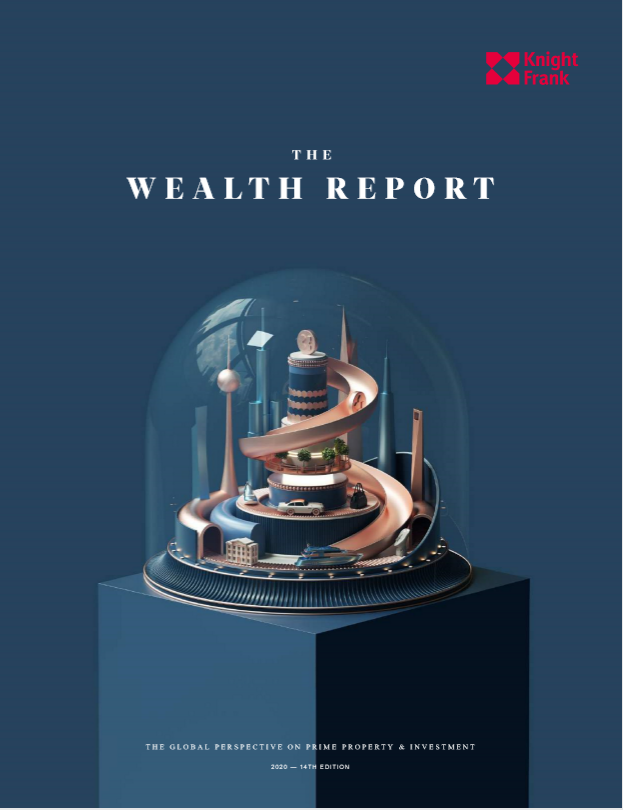|
Industry Pulse about 2020 Wealth Forecast & COVID-19
BritCham Guangdong connects and promotes businesses in the Greater Bay Area and bridges British business with Chinese enterprises. Every month BritCham Guangdong brings you news from our members which you may want to know about - Pulse offers you up-to-date industry insight through a 20-min read. BritCham Industry Pulse aims at joining the dots between our members and their market sectors.
Knight Frank comes up with The Wealth Report 2019, which casts its eye over how the concept of wellbeing is becoming increasingly influential in all aspects of our lives, from the investments we make to the places we choose to live. The insight provided by the report’s many different contributors, including the influential investor Jim Mellon, is both fascinating and thought provoking. The report also features its usual in-depth guides to the performance of the world’s luxury residential markets, and the commercial investment sectors that are increasingly being explored by private investors, as well as the results of Knight Frank’s Attitudes Survey, which this year is based on US3.3 trillion of private wealth. Key Takeaways in this report
For more details about Knight Frank The Wealth Report, please click here
The hit to the global economy from coronavirus will be very hard, but is likely to be short-lived, while the recovery in markets may well come sooner. St. James's Place's fund managers are all thinking carefully about how the coronavirus crisis, and its impact on markets, might affect the companies they invest in. Below you can find what some of them have been thinking in recent days. John Bell, Loomis Sayles, Boston I expect to see a combination of anti-viral medications and vaccines develop over 6 to 12 months globally. We are seeing daily positive articles on the effectiveness of anti-virals from other countries. Vaccine development appears to be moving very quickly, and there is potential for a vaccine to get to people as soon as the end of 2020. If people think effective treatments and vaccines are imminent, life could go back to normal, and in this case, that could mean coming out of our protective shells into a world powered by loose monetary and fiscal policy. Unlike the great financial crisis, which seemed to threaten the end of the financial world, this crisis feels particularly curable. We may have a couple of quarters of down GDP, but the potential rebound should be far closer than in an average recession. Historically, markets have tended to anticipate upturns about six months before they occur. As a result, I think markets could start looking better over the very near term if things get particularly good with vaccines and antivirals or, more likely, in about six months, as markets anticipate an eventual vaccine about 12 months after development began. It may be hard to believe now, but a year from now we could be talking about when to remove stimulus, so the economy does not overheat. Mark Holman, TwentyFour Asset Management, London A global recession in the second quarter of this year looks inevitable, but we think with the policy action taken and with a return to work when it comes that the recovery could be very sharp on the upside. Markets aren’t expected to wait for this to happen though, their reaction will likely be much quicker, and the levels we see today can offer material future upside. Additionally, it is worth commenting on the enormous cost of these rescue packages, which will almost certainly result in ultra-low yields and official rates near zero for the next decade. In the years to come, we expect to be looking back at this current period as the best entry point for many years. So, we would urge investors not to panic from here. In our experience, long term investors such as pension funds will be looking at today’s bond yields very positively. Shorter-term investors will not be far behind. For more SJP fund manager views, please click here
Uncertainty over the ultimate extent and impact of the pandemic has led to the greatest fall in financial markets since the global financial crisis in 2008. Recessions in several European countries and elsewhere have been predicted. The Organisation for Economic Co-operation and Development (OECD) has predicted that COVID-19 will lower global GDP growth by one-half a percentage point for 2020 (from 2.9 to 2.4 percent In the UK government's budget on 11 March the Chancellor, Rishi Sunak, acknowledged that the virus would have a “significant impact” on the UK economy, even if it would be “temporary.” In addition to promising "Whatever extra resources our NHS needs to cope with coronavirus" the Chancellor introduced significant support for the workforce and to support in particular smaller businesses. In a coordinated move with the government, the Bank of England has reduced interest rates to 0.25% - their lowest ever level, introduced a new loan scheme for businesses, and taken steps to increase the supply of credit in the economy. Since the budget, on 16 and 20 March, the Chancellor has announced much greater financial support measures for businesses and workers. Against this backdrop Clyde & Co address in this article aspects of the pandemic which are relevant for the boards of UK companies to consider as the full business impact of the pandemic emerges. They look at: Corporate administration, reporting and disclosure requirements Corporate borrowing and financial arrangements Commercial contract considerations Considerations for corporate acquisitions and disposal Insurance for business interruption The workforce Government support For more details about Clyde & Co's COVID-19: Considerations for UK Boards, please click here Want to contact BritCham members who contributed to the above reports? Want to contribute your report to BritCham Newsletter? Please contact events@britchamgd.com |










